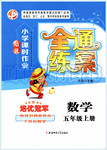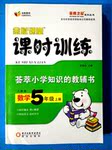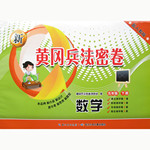题目内容
In the UK, a woman usually doesn’t like to be asked ____________.
| A.whether she had been married | B.what is her age |
| C.how much she weighs | D.where she comes from |
C
解析试题分析:英语宾语从句中一般为陈述语序。whether she had been married她是否结婚了;what is her age她的年龄是多少; how much she weighs她有多重;where she comes from她来自哪里.在英国女人忌讳的是问年龄和体重,选项B是倒装语序,故选C.
考点:宾语从句
点评:宾语从句中一般为陈述语序,需注意当疑问词做从句主语时,则貌似倒装句,需注意区分。关于引导词的区分需结合引导词的基本含义及其在句子中所承担的句子成分进行具体分析。宾语从句的时态和主句没有必然的联系,需结合语境具体分析。

 小学课时作业全通练案系列答案
小学课时作业全通练案系列答案 金版课堂课时训练系列答案
金版课堂课时训练系列答案 单元全能练考卷系列答案
单元全能练考卷系列答案 新黄冈兵法密卷系列答案
新黄冈兵法密卷系列答案In 1986, Honda made a robot called ASIMO. And now, it has been developed greatly. Standing at 130cm and weighing 54kg. ASIMO is very much like a small astronaut wearing a bag on the back. And he can walk, flight, climb and run fast. Isn’t it wonderful?
The world’s first robot teacher is Saya. With her human-like face, she can show expressions like happiness, surprise, sadness, dislike, fear and she can even smile or show anger at students, which look much like a real teacher’s. To do this, her rubber skin is pulled from the back with motors inside. And her eyes and mouth have wires(电线) too. She can also say some simple words like “hello” or “thank you”.
In the UK, the development of robots is exciting. The mini-robots will send food, clean floors, collect and throw away waste. These robots can open doors by themselves and stop if anything or anyone is in the way.
These mini-robots are very useful for controlling infection(传染). Usually clean and dirty work is done by the same person, but here, you’ll have robots that do”dirty work”, like collecting dirty sheets, or taking away hospital waste; and you’ll have robots that do”clean work”, like bringing meals or clean sheets to patients. The robots have separate work so there’s no way for infection, which is great. But of course, robots would not take the piece of humans, but would free up more time for nurses to be with patients.
But if this is what it’s like in 2011, what’s it going to be like to 2021?
【小题1】In the following, which is ASIMO’s behavior?
| A.Smiling at people, saying “hello”. |
| B.Sending food or opening doors by himself |
| C.Fighting, climbing or running fast |
| D.Collecting waste for patients |
| A.Her face and rich expressions | B.Her clothes and shoes |
| C.Her walking and running speed | D.Her rich knowledge |
| A.Robots have come a long way since 1986. |
| B.The first robot teacher was made by Honda. |
| C.Saya looks like a small astronaut. |
| D.If anyone or anything is in the way, mini-robots will stop. |
| A.nurses would have more free time with patients |
| B.robots would not take the place of humans |
| C.dirty and clean work is always done by the same person |
| D.mini-robots are useful for controlling infection |
It's still the holiday season and students in the UK are enjoying their winter break (休假).
Tiffany in Guangdong asks us about how British students spend their winter break.
For some, it's a time to study because they have exams next term. Some might have to study. They have to read some books. They use the winter break to catch up with(赶上) their reading. But some students can Let their hair down and celebrate Christmas and New Year with a few drinks.
This holiday is also an important time to chat with the family and maybe get some sleep too. Some lucky students are going away on holiday but it won't be long.
【小题1】 What do the underlined words "let their hair down" mean in this reading?
| A.放下头发 | B.烫发 | C.放松 | D.理发 |
| A.The winter break in the UK is not long. |
| B.The winter break in the UK is a time for sleep. |
| C.Students work hard in the winter break. |
| D.Students are preparing for the coming exam. |
| A.the differences between the winter break in China and the UK |
| B.what the students in the UK usually do in the winter break |
| C.why some students like the winter break |
| D.how to celebrate the winter break |
Li Yan is a Chinese girl. She lives in Yangzhou with her grandparents. Her parents are in England now and Li Yan will go there this summer holiday. But her spoken English is not good. She does well in English exams, but she can only write. So Li Yan wants to study hard to speak good English.
Every Saturday evening, Li Yan goes to “English Corner”. It’s a place for people to speak English. There are also many foreign(外国的) people. They come from America, England or Australia. Kitty likes talking with these foreign people. When the summer holidays come, her spoken English is much better! Her parents are so surprised to see her change (变化) and they are very happy.
【小题1】Li Yan’s parents are in .
| A.Yangzhou | B.Australia | C.America | D.England |
| A.英语写作 | B.英语口语 | C.英语表达 | D.英语考试 |
| A.speak English very well before she practices |
| B.get high marks(分数) in English exams |
| C.get high marks in all exams |
| D.live in the UK after the summer holidays |
| A.to speak English only with foreign people |
| B.to meet only with foreign people |
| C.for people to practice speaking English |
| D.in England |
| A.She can go to England |
| B.She can live with her grandparents and parents. |
| C.Her spoken English is much better. |
| D.She likes “English Corner”. |
Going on holidays is best choice for the Europeans to relax themselves, especially in the UK. However, much has changed during the past decades(几十年).
One of the most traditional British holidays was the “seaside holiday”. Families got on a train or into a car and traveled to seaside towns nearby to sunbathe on the beach, buy ice-creams and eat fish and chips and so on.
In the late 1970s, more and more British people started traveling to other countries in Europe for their summer holidays (July-August) because the weather wasn’t very good, even in summer. The “package holiday” was particularly popular with most families.
In the 1980s and 1990s, young people in the UK became wealthier, so many of them traveled to countries all over the world for their holidays.
These years, especially after the world financial crisis(金融危机), most British people can not afford to spend their holidays abroad. They again begin to choose to stay in their own home and go on a few day trips rather than spending money on hotels. They call this sort of vacation a “staycation”.
任务:请阅读上面短文,根据短文内容完成下面表格中的有关信息。
|
Time |
Kind of holiday |
Reason |
|
Before the late 1970s |
1.________ |
It was a tradition. |
|
In the late 1970s |
Package holiday |
2.______ |
|
3.__________ |
Overseas holiday |
Young people became wealthier. |
|
These years |
4.________ |
The world financial crisis. |